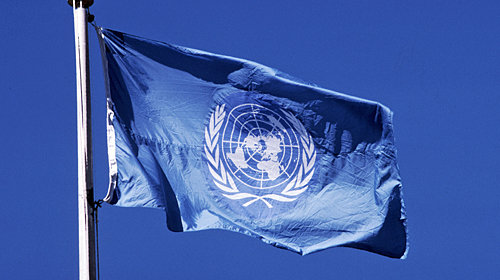
The U.N. Human Rights Council voted today to establish a watchdog to monitor the state of privacy rights worldwide. That watchdog, called a special rapporteur, was created by a consensus vote of all members of the council. ThatÔÇÖs very good news, and itÔÇÖs been a long time coming. As we noted recently, itÔÇÖs been clear for a while that privacy has been one of the most widely violated rights not to have its own, dedicated rapporteur.
The special rapporteurÔÇÖs three-year, renewable mandate relates to privacy broadly, which touches a wide range of important issues, including reproductive rights, sexual orientation, and more. But todayÔÇÖs vote was clearly prompted by concern over U.S. surveillance practices and the security of digital information. We know this from our meetings with various sponsors of the resolution, as well as from the text of the itself:
The Human Rights Council ... [d]eeply concerned at the negative impact that surveillance and/or interception of communications, including extraterritorial surveillance and/or interception of communications, as well as the collection of personal data, in particular when carried out on a mass scale, may have on the exercise and enjoyment of human rights ... [d]ecides to appoint, for a period of three years, a special rapporteur on the right to privacy.
Once a human rights expert is selected to be the rapporteur, he or she will visit various countries, conduct research, document rights violations, and ultimately help shape the evolution of the applicable human rights law. Because the resolution emphasizes digital privacy, the rapporteur will likely follow suit. ThatÔÇÖs important because surveillance practices that have recently come to light raise several major questions about governments and non-state actorsÔÇÖ compliance with international human rights law.
For example, can mass surveillance ever be compatible with the human right to privacy? Under what conditions do treaty obligations to respect privacy extend beyond a countryÔÇÖs own borders? Does a country violate standards of non-discrimination by affording fewer privacy safeguards to foreigners than to its own citizens? And at what point do privacy invasions violate other protected rights ÔÇô including rights the U.S. has sometimes promoted around the world, like the ?
We are eager to engage with the rapporteur on these issues. In the meantime, we will continue to encourage the U.N. Human Rights Committee to update its interpretation of the human right to privacy as guaranteed in the International Covenant on Civil and Political Rights (ICCPR), a treaty ratified by the U.S. in 1992. The committee interprets and monitors state compliance with the treaty, but it issued its interpretation of the right to privacy ÔÇô ÔÇô in 1988. As you might imagine, General Comment 16 barely mentions computers, and never refers to the Internet at all.
Yesterday we released a report that analyzes state obligations to protect the human right to informational privacy under the ICCPR ÔÇö specifically in light of recent technological developments. We hope the report will help the committee update and clarify its current interpretation of the right to privacy for states that ratified the ICCPR, a number of which supported todayÔÇÖs creation of a mandate for a privacy rapporteur.
Many U.N. bodies have already weighed in on questions of digital privacy and surveillance, but itÔÇÖs not too late for the committee to play a central role in interpreting the law. If anything, todayÔÇÖs vote gives it one more reason to revisit the right to privacy. Not only would the committee be addressing an issue of widespread global concern (as documented most recently in this new ), but the timing also couldnÔÇÖt be better: An updated committee analysis would be extremely valuable to the work of the new rapporteur.
Learn more about human rights and other civil liberty issues: Sign up for breaking news alerts, , and .

